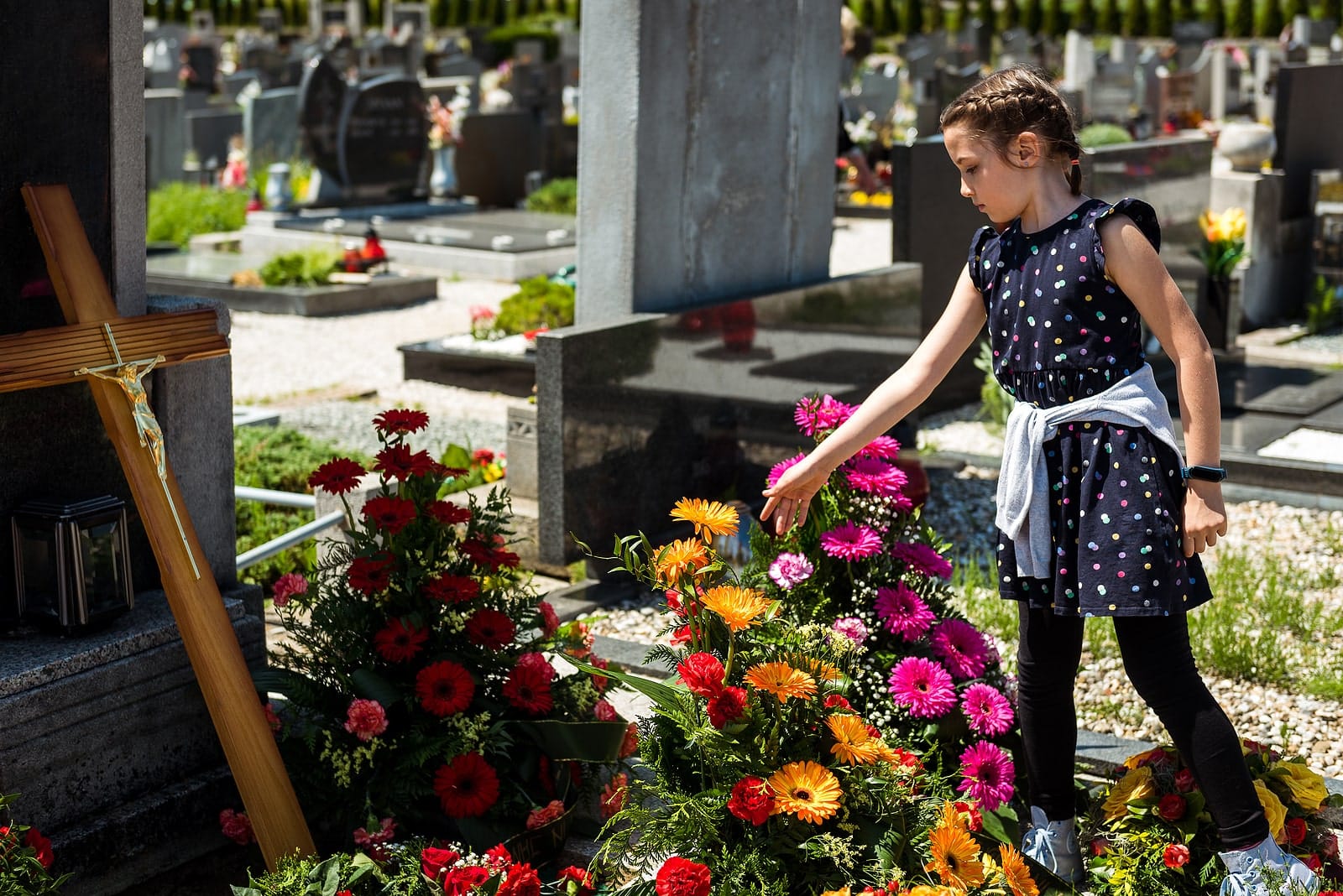Processing the passing of a loved one is a difficult time, so it’s important to lean on family and friends and the help of experts, like the funeral director and your local monument company, to make the decisions you need. If your loved one didn’t leave explicit wishes about whether they want to be cremated or buried, it’s one of the first decisions you’ll have to make. This is a very personal decision and there are a number of factors to take into consideration depending on your circumstances and wants, so we’ve put together this guide to the differences between cremation vs. burial to help you get started.
Understand The Process
If you choose a burial for your loved one, you’ll first choose a cemetery and a plot. Once you’ve chosen a cemetery and determined the type of plot that is right for your loved one, you’ll purchase the burial plot. Then, you’ll work with the funeral home to choose a casket and plan a funeral and/or memorial service for your loved one.
If the burial service happens immediately after the funeral, the funeral director will assist family and mourners to the cemetery where a short burial service will take place at the designated plot. This could include readings, prayers, or other words of condolence or celebration. The casket will be set up above the grave, and flower arrangements or other tributes will be placed. Immediately following the departure of friends and family, the casket will be lowered into the grave and buried.
During a cremation, the body is prepared the same way as it would be for a traditional funeral. The person is bathed, cleaned, and dressed, though there is no embalming required unless requested. Then, they are placed in the cremation container, which is typically a combustible casket-like container.
Once the deceased is prepared, they will be placed inside the cremation chamber and be naturally broken down into ash. Once the ashes are cooled, they are checked for any remaining impurities, which are removed, and then sent to a cremulator which refines them further. At this point, the cremation is complete and your loved one’s ashes will be transferred to the urn or container of your choice.
Some people have a preference for one over the other simply based on the process and their comfort level with what happens, which can make the decision a little easier.
Consider Costs of Cremation vs. Burial
There is a significant difference in cost between a burial and cremation, though it varies by state, funeral home, crematorium, and cemetery.
Cremation costs:
- If you choose to not have a funeral service, a cremation will typically cost between $350 and $1,200.
- A cremation with a memorial service (no casket and no embalming) will cost around $2,500 to $4,000.
- A cremation with a traditional service (casket, funeral service, burial) will often range between $5,000 and $7,500.
Burial costs:
- The cost of a burial can depend on the cemetery you choose. There are several fees and parts associated with the cost, such as the plot land, fees for the opening and closing of the gravesite, fees for permits and equipment, costs for other services or items purchased, a fee for maintaining your loved one’s burial site, and others.
- Cost can range from around $4,000 to more than $10,000, but according to the National Funeral Directors Association (NFDA), the average cost of a funeral with a viewing and burial costs $7,640.
Take Religious and Cultural Beliefs Into Account
Some religions and cultures oppose cremation, while other embrace it. And vice versa, some religions and cultures prefer or even require cremation over traditional burial.
For example, Hindus believe cremation not only helps with the disposal of physical remains, but aids in ushering the soul of the deceased into the hereafter for its reincarnation/birth. On the other hand, those of the Catholic faith prefer burial based on their belief in the resurrection of Jesus and the belief there’s an eternal future for the body and soul.
Weigh The Importance of A Final Resting Place
When a loved one is buried in a cemetery, it gives family members and friends a permanent place to visit and reflect. While cremated remains can be buried, it’s less common. Consider whether having a physical place to go is important to those left behind.
On the other hand, cremation allows your loved ones to keep the remains with them, which can sometimes be more comforting.
Remember Your Loved One’s Preferences
Think about your loved one as a person and what they may prefer. For example, if they were claustrophobic, they may not have wanted to be buried in a traditional casket. Or, if they loved a certain vacation spot or there’s a place that reminds you of them, perhaps spreading their ashes there would be the best way to celebrate their life and memorialize them.
Burials are also more traditional and comfortable, and the family can make it more personal by choosing the casket, headstone or grave memorial, and the location of the site. Headstones can be completely customized to represent your loved one’s life with quotes, phrases, photos, and more, which can be a wonderful way to celebrate your loved one’s life.
Contact Tegeler
If you are in need of a monument or headstone in Maryland and the surrounding regions, contact Tegeler today. We can help you weigh the differences between cremation vs. burial and decide the best option for you and your family. We are a family-owned company that has helped countless families across four generations find the perfect methods of memorializing their loved ones. Call (410) 944-0300 to learn more.


Comments are closed